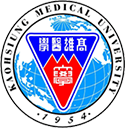Bachelor of Arts in Medical Sociology and Social Work in Medical Sociology and Social Work
Program Overview
The undergraduate program in Medical Sociology and Social Work at Kaohsiung Medical University offers a rigorous and interdisciplinary curriculum that bridges the fields of health, society, and welfare. Designed to prepare students for professional careers in social services, public health, and medical care systems, the program emphasizes both theoretical foundations and applied practice, with a strong focus on the challenges posed by an aging society and social inequalities.
International students will benefit from a culturally rich learning environment that incorporates Taiwan’s unique social context, while building transferable skills relevant to global human services professions.
Curriculum Structure and Highlights
-
Interdisciplinary Focus
The curriculum integrates core knowledge from medical sociology, social work, psychology, public health, and healthcare management. Students are trained to understand the complex interplay between individuals, institutions, and systems of care. -
Four-Year Study Plan
-
Freshman Year (Year 1): Students begin with foundational courses in sociology, social work, statistics, psychology, and human anatomy & physiology. Courses such as Introduction to Social Work and Voluntary Services provide early exposure to professional practice.
-
Sophomore Year (Year 2): Students take intermediate-level courses such as Medical Sociology, Social Casework, Community Work, and Human Behavior in the Social Environment. Students begin to explore specialized topics in health policy, aging, and welfare.
-
Junior Year (Year 3): Emphasis shifts toward professional development and research. Students complete Social Research Methods, Policy and Legislation, and their first field internship in a community or institutional setting.
-
Senior Year (Year 4): Students complete two additional internships, a capstone seminar, and advanced electives on topics such as long-term care, hospice social work, health inequality, and disaster response.
-
-
Practice-Based Learning
All students complete three semesters of supervised field internships, providing valuable hands-on experience in hospitals, community organizations, schools, or social welfare institutions. -
Flexible Electives
A wide array of electives allows students to focus on aging, family and child services, disability, mental health, international social work, or gender and health.
Degree Requirements
To graduate, students must complete a minimum of 128 credits, distributed as follows:
-
Major Requirements:
-
Core and Required Courses: 76 credits
-
Major Electives: 24 credits
-
-
General Education: 28 credits
-
Required (Foundational & Liberal Arts): 13 credits
-
Electives: 15 credits
-
Micro-credit courses and courses from other departments are not counted toward graduation requirements.
Language and English Proficiency Requirement
All students must meet the university’s English graduation requirement, equivalent to passing the GEPT Intermediate Level (first stage). Students who have not yet met this threshold must take supplementary English instruction as designated by the university.
International Student Notes
-
Course instruction is primarily in Mandarin Chinese; however, selected courses are available in English or with bilingual support.
-
International students are encouraged to meet with academic advisors for personalized course planning.
-
Students may also participate in university-organized community engagement and international exchange opportunities.
Being situated in a medical university, the Department not only provides courses in the social work field, but also medical-related subjects, such as Anatomic Physiology, Introduction to Medicine, and Introduction to Psychiatry. A minimum of 128 credits, including 75 required credits, 25 elective credits, and 28 general education credits are required for a bachelor degree. The practice of social work is required and is to be taken in the summer breaks and the regular fall semester.

